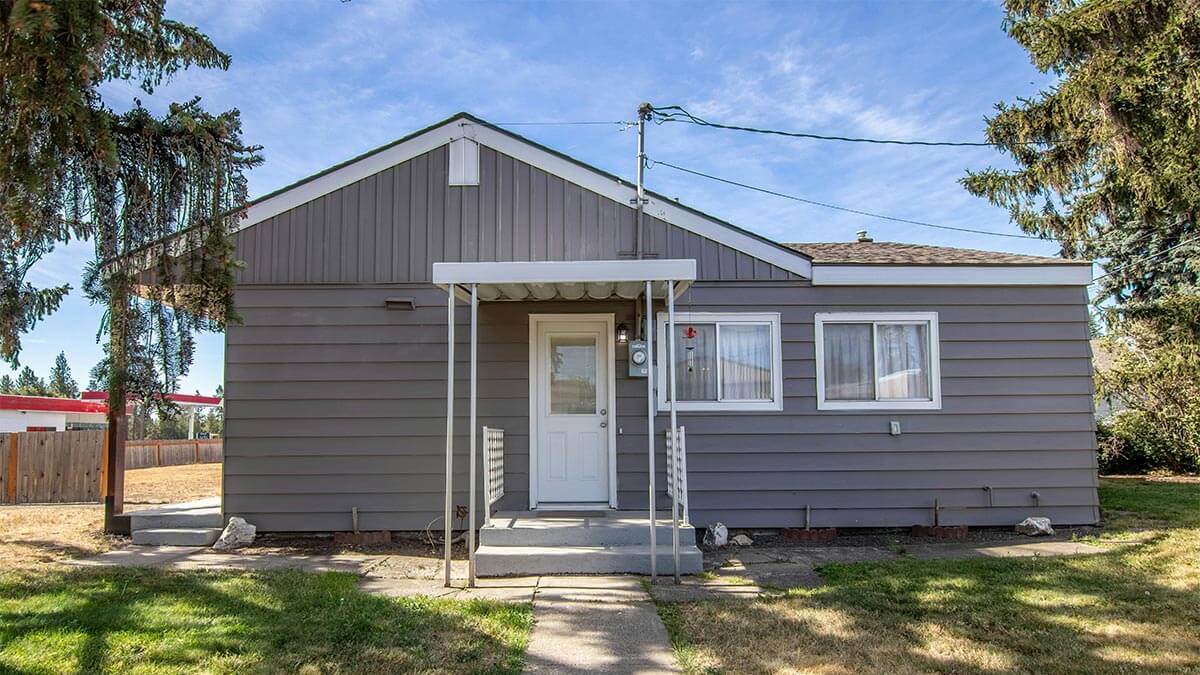The executor of a will plays an important role in the event someone passes, as it’s their job to distribute assets. In some cases, this can include selling the deceased individual’s property.
This article will discuss the duties of an executor, the legal implications involved in selling property, and tips on how to simplify the process.
If you’re looking for an easier way to manage a property sale, iBuyer.com offers a solution that will save you time and stress during an already challenging period.
The Executor’s Duties
Compare Cash Offers from Top Home Buyers. Delivered by Your Local iBuyer Certified Specialist.
One Expert, Multiple Offers, No Obligation.
What is an estate executor?
An estate executor is someone responsible for dealing with someone else’s estate after they’ve died. In most cases, the deceased person will leave special instructions for the estate executor before they pass. If they don’t, it’s up to the executor to decide what’s best for the estate.
Executors can be appointed by either someone that makes a will or a court. Those that are appointed by a court are often appointed if a will wasn’t made. They can also be appointed if the person that was intended to be an executor doesn’t want to.
Most executors are lawyers, accountants, or family members. When appointing an executor, it’s best to go with someone like a lawyer or accountant because they have more experience. They’re also less likely to be biased, whereas a family member could prevent things from happening due to personal feelings.
What is an estate?
An estate consists of everything that a person owns. Some of the most common things are stocks, real estate, and other physical properties. Executors need to figure out how much things are worth and decide whether they should be sold or given to someone else.
When someone makes a will, they can instruct the executor to give things to other people. For example, a father can decide to pass along his car to his child. The executor will be responsible for seeing through that the car goes to the right person.
If the deceased person has debt, an executor will need to figure out how to pay off those debts.
Duties of an executor
An estate executor plays a major role in the lives of a family that’s lost someone. While taking on the role of being an executor is difficult; those that have experience can do a variety of things to make everyone else’s life easier.
Here are some of the main duties that executors perform:
Obtain the death certificate
Before anything can be done with the estate, an executor needs to obtain the death certificate. Getting the death certificate is a simple process because the funeral home of the deceased person will have it.
When obtaining a death certificate, you should make several copies of it. You’ll need to provide a death certificate when doing various tasks, such as closing a bank account or selling a house. These copies will also need to be certified to avoid problems when doing tasks.
File the will
After getting the death certificate, an executor will need to file the will with a probate court. During this step, they’ll ask to be formally named the executor of estate and will provide a copy of the death certificate. Those who have been named executors of the estate but don’t have the will must locate it before moving forward.
If you decide to file a petition for probate, which involves verifying a will, you must notify heirs about the appointment. This allows people to object to parts of the will. If you can’t get into contact with someone, you can list a notice in the local newspaper.
Notify others
Although you’re legally obligated to notify creditors and heirs, you should also notify other family members and friends. If the deceased person was receiving government benefits, you need to inform the appropriate agencies of the death.
Contact insurance providers and let them know that coverage will no longer be necessary. Credit cards should be canceled, and bank accounts should be closed. However, figure out what you’ll do with the remaining funds before closing the account.
Try to reach out to a credit reporting bureau so that you can add a death notice. Doing this will prevent identity theft because the decedent’s credit will be frozen.
Doing all of these things will require copies of the death certificate, which is why you should get several. Most of these institutions will keep a copy for future documentation.
Open a temporary bank account
Opening an estate account for the estate is highly beneficial because you can keep track of all the money. You should never take the money and store it in a personal account because there’s a good chance that you’ll mix it up with yours.
With an estate account, you can see all incoming and outgoing funds. After you’ve decided what you want to do with everything, you can close the account like you would any other bank account.
Appear in court
Throughout the entire process, you’ll be responsible for appearing in court several times. After the initial hearing, you may need to show up more if people have disagreements over the will. If people think that you aren’t properly performing your duties, you’ll need to represent yourself.
Pay debts and taxes
When a decedent owes money, the executor will figure out how to obtain the funds to pay everything back. Executors do not use personal funds to cover debts and taxes. All of the money comes from the estate, which may require selling things.
Mortgages, utility bills, credit cards, and loans will all need to be paid in full. If there isn’t enough money in the estate to cover everything, the court will decide which debts are more important.
Distribute assets
The distribution of assets is one of the most important duties that executors have. When there’s a will, this process is usually simple because the decedent will have instructed where everything should go. If there isn’t a will, you’ll need to decide how to distribute assets to the right people.
When it comes to distributing assets, most things should go to direct family members of the deceased person. If they don’t have a partner or children, you can distribute assets to the parents.
The process of an executor selling property
When it comes to an executor selling a house and other property, the process can be long and frustrating. However, simplifying the process will prevent you from running into problems when you start the process.
So how does an executor sell a house? They go through these steps:
1. Get the property valued
Before selling a decedent’s house, you must get it valued. Doing this will make it easier to figure out how much to sell the house for. It will also give everyone clarification as to what they could earn from it.
When it comes to getting a proper value, it’s usually based around the date the owner died. The actual value can fluctuate during the time that an executor is doing everything else, so you’ll need to sit down with someone and see how much to sell it for.
2. Check the title and deeds
You must ensure that the house is in the decedent’s name. If it’s jointly owned, you’ll need to confront the other owner to see what can be done. The other owner may agree to sell it or take full ownership of the house.
This will also let you know if there’s an outstanding mortgage that will need to be paid off from the estate. If the house isn’t owned by the decedent, you won’t be able to sell it.
3. Speak with beneficiaries
It’s always a good idea to speak with beneficiaries about the house before you go through with a sale. Keep in mind that these are the people that will be receiving funds from the sale, so they should have an input. However, you’re not required to get their approval on a property sale.
If you sell the house at an extremely low value, beneficiaries have the right to sue you. To avoid this, get their opinions on how much the house should be sold for. After getting a valuation, you can give them a better idea of how much they can get.
4. Evaluate your options
When an executor is selling property, they often go to traditional real estate agents to ensure everything goes smoothly. While this is the main way to sell a home, you can also use a quick house sale company.
Working with a traditional real estate agent will ensure you get a fair price for the house. While you may have to wait a while for sale to go through, you’re more likely to get an amount closer to the value of the house.
Those that are looking to make a quick sale should resort to a quick house sale company. These are third-party companies that will purchase the house within little time, but at a much lower value. You could get a cash offer from this type of sale but seek approval from beneficiaries before doing it.
5. Sell at market value
When you get a valuation, you should try to sell the house for a price that’s as close to the market value as you can get. Selling at market value will prevent you from running into problems with beneficiaries.
While you’ll be fine if you make a sale at a higher value, try not to go much lower than the market value. Getting sued by beneficiaries will be a long and stressful process, and you may be responsible for paying them.
6. Make a plan
As soon as you become an estate executor, you need to start making a plan. This will help you when you start the house selling process because you’ll know exactly what to do when going into it.
In your plan, you’ll need to outline how you’ll sell the house. Include all of these steps within your plan, but come up with alternative strategies to use if you run into a problem.
Be realistic about the probate timeline, so you don’t get anyone’s hopes up. When an executor of an estate is selling property, it’s common to wait several weeks or months for everything to get finalized.
7. Clear the property
The last thing to do when selling a house is clear it. This will require you to go through and remove belongings. You’ll also need to clean the house to avoid turning potential buyers away.
You can hire movers and a cleaning company, but you should also ask beneficiaries to come in and help. If certain belongings will go to someone, have them get them from the property before moving anything.
Now you can simplify the process
After reading this article, you can now prepare yourself to become an executor of the estate and handle everything appropriately. Although the process may seem daunting in the beginning, all you need to do is go through these steps.
We encourage you to make a plan before doing anything because this will give you something to rely on. After making a plan, you can start going through all the steps you need to do to distribute assets and sell a house.
Should you run into problems when selling the house, you can go through the steps to come up with a resolution. However, you should be fine, providing that you communicate with beneficiaries and ensure that the decedent owns the property.
Looking for cash offers on your home? You’ve come to the right place!
Reilly Dzurick is a seasoned real estate agent at Get Land Florida, bringing over six years of industry experience to the vibrant Vero Beach market. She is known for her deep understanding of local real estate trends and her dedication to helping clients find their dream properties. Reilly’s journey in real estate is complemented by her academic background in Public Relations, Advertising, and Applied Communication from the University of North Florida.




